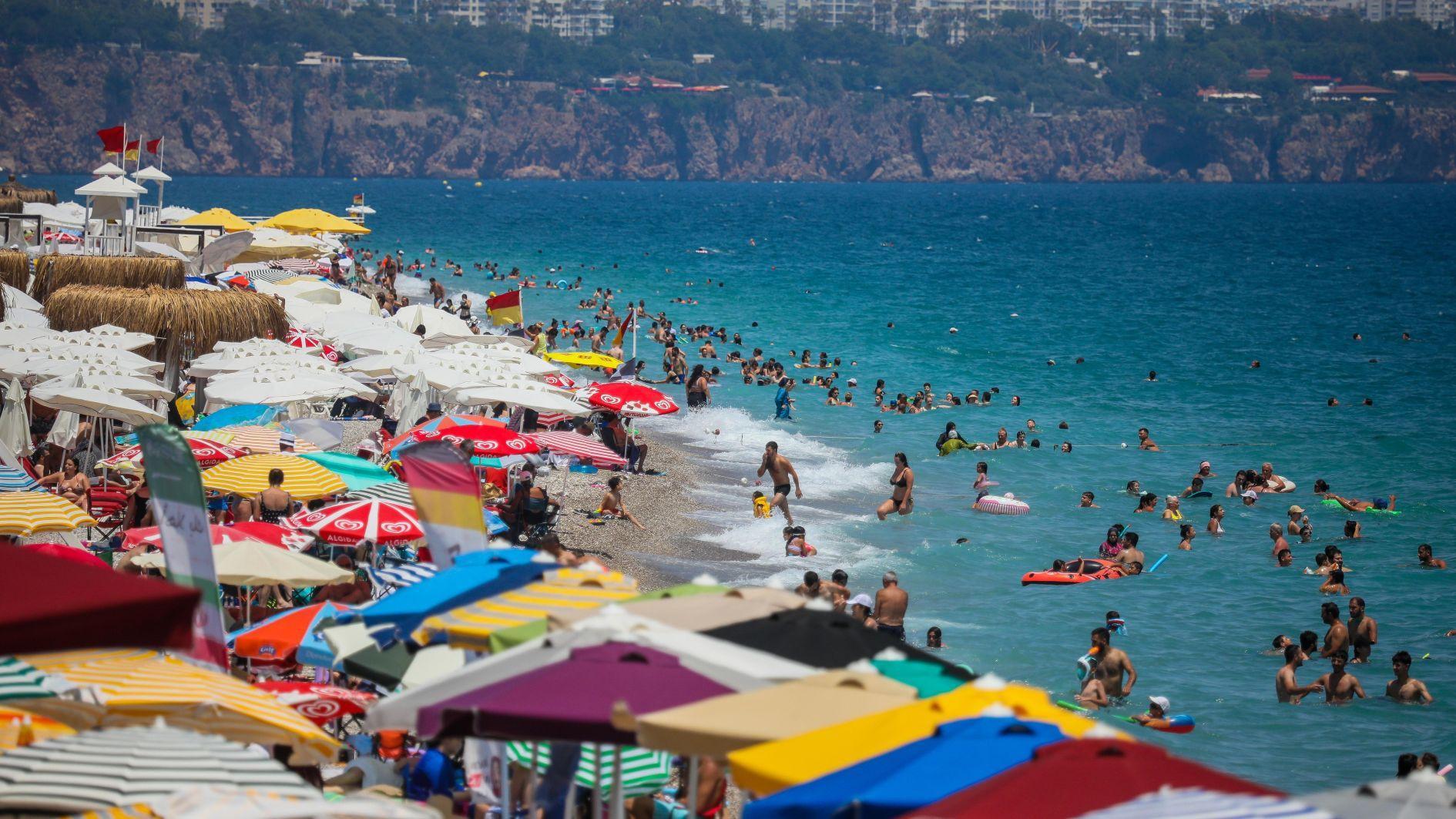
The tourism sector in Türkiye's Mediterranean resort city of Antalya has adjusted its 2025 target to 17 million visitors, down from an initial 18 million, as global inflation and ongoing conflicts in the region's north and south take a toll, industry leaders have said.
By early August, the city had welcomed over 9 million tourists, roughly on par with the same period last year, according to Kaan Kaşif Kavaloğlu, president of the Mediterranean Touristic Hoteliers and Operators Union (AKTOB).
"If the issues in our geography persist, catching last year's 17 million would count as a success," Kavaloğlu told reporters. "We set the bar at 18 million at the start of the year, but with the Russia-Ukraine war dragging on, plus tensions between Iran and Israel and in Palestine, it looks like we'll stay around 17 million."
Kavaloğlu noted a brief slowdown in early July, with some vacancies appearing, but said the peak season has since kicked into high gear.
"From mid-July through August, until schools reopen, we're seeing heavy demand from the domestic market, Turks living in Europe, Russians, Germans and Brits," he explained. "Despite the crises in our region, hitting 17 million this year would be a major achievement."
Talks with tour operators for 2026 have already begun, with Kavaloğlu signaling another challenging year ahead.
"We knew 2025 would be a transition period. The sector is resilient, and reaching these numbers amid all the problems is key. Plus, visitors come from about 100 countries, with flights from nearly everywhere within four hours of Europe. If the Russia-Ukraine war ends, Antalya could hit its original targets again."
Russians continue to lead as the largest group, a fact Kavaloğlu called invaluable for Antalya.
"Even with the war, Russia stays our number one market—that's huge. Germany is holding steady like last year, and our top four markets are basically unchanged. The slight 0.7 percent dip overall ties back to known factors: Russia steady, Germany same, U.K. and Poland similar."
For 2026 contracts, the focus will be on keeping prices competitive with smaller increases than in past years.
"Globally, there are five key source markets: the U.S., China, U.K., Germany and France. Since boosting from the U.S. and China isn't feasible for Antalya, we're zeroing in on the other three.
The U.K. has growth potential, especially for family holidays — Antalya could outshine Spain there. We've already passed 1.5 million from the U.K.
"Germany, a massive market, isn't growing as we'd like. If we hit 4 million from Germany, 2 million from the U.K., and Russia returns to its 2019 peak of 6 million, we'd be set. But the ongoing war and Germany's slow uptake are hurdles. Poland's flat this year, but Benelux — especially the Netherlands and Belgium — is stable. Ukrainians, particularly those in Europe, are coming back in higher numbers. Iran is down, Israel is almost zero, and surprisingly, Kazakhstan has dropped."
Kavaloğlu emphasized that Türkiye and Antalya have maintained competitiveness without losing ground, despite sharp price hikes post-pandemic.
"From 2022 to 2025, prices rose nearly 50 percent in forex terms since we held steady during COVID. We'll keep increases moderate to stay value-driven. People used to call Türkiye cheap; we'd say it's about a great cost-benefit for consumers. We need to preserve that amid mild European inflation — nothing double-digit. That's how we're approaching 2026. The stable currency hurts us, though."